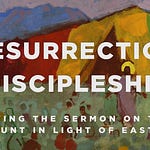Ash Wednesday 2024
Lord of all Life, we come before you not knowing who we are. We strut our stuff, trying to impress others with our self-confidence. In the process we hope to be what we pretend. Save us from such pretense, that we might learn who we are through trust in you to make us more than we can imagine. Help us, Augustine-like, to reread our lives as confessions of sin made possible by your love. Bind up our wounds and our joys so that our lives finally make sense only as a prayer to you. Amen.[i]
Is it just me, or does it seem like Ash Wednesday and Lent sneak up on us year after year? High holy and feast days in the church help us mark God’s time. While it may seem as though we are never quite ready, Christmas does not sneak up on us the same way that Lent and Ash Wednesday have. Every year, as the days in December tick away, we know that when we get to December 20, we are just five days away from Christmas. Ash Wednesday and Lent are different. This year, Ash Wednesday falls on February 14th, meaning Lent begins today. That means Easter will be March 31st. Last year, the dates were February 22nd and April 9th. Next year, 2025, the dates will be March 5th and April 20th. I am a pastor, and I can’t keep this stuff straight, so Ash Wednesday and Lent sneak up on me year after year.
It never fails that when days like Ash Wednesday sneak up on us, we can find ourselves unprepared for the day's agenda. A weeknight worship service that falls during our children’s bedtime. The adoption of a Lenten discipline will disrupt our routines. This is on top of whatever is going on in the world, on top of whatever else is going on in our lives.
In the middle of his Sermon on the Mount, Jesus offers anyone with ears to hear his holy two cents on acts of piety. In teaching about charity, prayer, and fasting, Jesus is making the point that the point of these acts is to not draw attention to ourselves. We are not the focus of our piety. We are not, Jesus says, seeking to impress others with our Lenten disciplines or internally justify ourselves through our actions. Jesus meant this when he said, “Do not let your left hand know what your right hand is doing.”[ii] Theologian Frederick Bruner writes, “The relation of the left and right hand might also apply to one’s spouse or closest friends or neighbors. However understood, Jesus wants to liberate us from having to be impressive to anyone, including ourselves.”[iii]
“Do not let your left hand know what your right hand is doing.”[iv]
Do not let your spouse know what you are praying for.
Do not let your best friend know that you are fasting.
Do not let your neighbors know you have adopted a new spiritual discipline.
We are living in the era of letting our left hand know what the right hand is doing. We live in the era of letting our spouse, partner, best friend, neighbors, and even strangers know what we are doing.
Jesus’s words to “not let your left hand know what your right hand is doing”[v] are difficult words for us to swallow, given we live in the epicenter of Western personal achievement. We live in the era when job promotions and awards, our children’s accolades, and personal triumphs are posted for all to see.
We are not the first to live with this temptation.
The prophet Isaiah spoke a word to the people saying that their fasting could not be mechanized because doing so would be an improperly motivated act. The prophet was inviting the people to seek and know God’s ways.
If we were the first, Jesus would not have needed to tell his disciples and those listening to his sermon not to “sound like a trumpet”[vi] when giving to people experiencing poverty. If we were the first to need to work on keeping our piety between us and God, Jesus would not have needed to say, “Do not look dismal”[vii] when you fast. Jesus would not have included “Do not store up for yourselves treasures on earth”[viii] in his sermon if we were the first to navigate this temptation.
God knows our hearts. God knows that when push comes to shove, unless we are reminded again and again, we risk turning the disciplines we adopt for this Lenten season into acts of self-righteousness that have more to do with us than God. Professor Stanley Hauerwas argues that Lent is a “dangerous time for Christians.”[ix] It is a “dangerous time” because, according to Stanley, we are tempted to “play at being a Christian.”[x]
Stanley continues, “Lent becomes a time where we get to play at being something we are not sure we are. Part of the difficulty is we are not sure we know what we are confessing when we confess we are sinners.”[xi]
Tonight, we will confess that we are caught in the snares of sin. We will confess we keep score of our good deeds along with the bad deeds of the person in the pew behind us. We will confess we have failed to love God with our whole hearts and our neighbors as ourselves.
And because this season of preparation and journeying sneaks up on us, we are often not ready to come to grips with our sin and the sin of the world, so we punt and say we will try again next year.
We forget, though, that the season of Lent is a means of God’s grace. Lent is one of the ways that God’s love for us and creation is revealed. And because Lent is a means of grace, we are not left to ourselves to figure out what charity, prayer, and fasting look like in the Kingdom of God. Its as Frederick Buechner wrote, “Grace is something you can never get, but only be given.”[xii]
I am sure you noticed in the gospel reading that we skipped verses 7-15. We skipped the part where Jesus taught his disciples how to pray so that they would not pray like those whose prayers draw attention to themselves instead of acknowledging that God is already present in our present circumstance, already working to make all of creation a blaze-like a bush with God’s glory, but not consumed.
The fancy theological term for Ash Wednesday is “repent.” You will be impressed to know that the Greek word metanoia means to turn away or reorient. Today is when we, as Christ’s body, repent, with the help of spiritual disciplines, God’s grace, and the power of the Holy Spirit to turn away from our sin and back toward God. And it is in repenting that we find the Good News of this day.
It is not that we repent on our own. If it were entirely up to us, we would not be able to repent because we would be unable to see that we are indeed caught in the snares of sin. We would be unable to see how we have sinned against God and one another. If we could repent on our own, we would not be caught off guard when Ash Wednesday and Lent appear on the calendar.
The grace of God repents us. God’s prevenient grace – grace that goes before us – helps us to begin to see where and how our sin is at odds with God’s cosmic plans for creation. God’s grace is at work in your life even when days like Ash Wednesday sneak up on you. The season of Lent – through the adoption of a Lenten practice and heeding the words of Christ – is one of the ways God is repenting us, pulling us from the snares of sin, and sanctifying us, making us more and more like Christ.
[i] Hauerwas, Stanley. Prayers Plainly Spoken. Wipf & Stock Pub. 2003.
[ii] Matthew 6:3, NRSV
[iii] Bruner, Frederick Dale. Matthew - A Commentary Vol. 1: The Christbook. Eerdmans 2004. Page 285.
[iv] Matthew 6:3
[v] Ibid.
[vi] Matthew 6:2
[vii] Matthew 6:16
[viii] Matthew 6:10
[ix] https://dukecrux.org/2021/02/23/stanley-hauerwas/
[x] Ibid.
[xi] Ibid.
[xii] Buechner, Frederick. “Wishful Thinking.” Originally aired 1/10/93 on the Chicago Sunday Evening Club. Accessed 2/14/2024

















Share this post